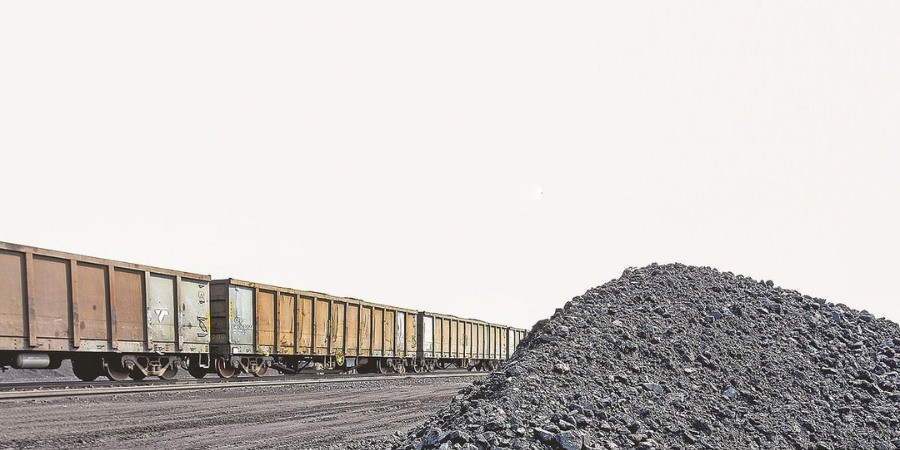India–US Trade Tensions Rise Over Steel and Auto Tariffs NMDC Limited reports a 38% drop in Q4 FY24 consolidated net profit RINL to Raise $23 Million Through Land Sales Amid Crisis

India's coal sector plays a critical role in the nation's energy landscape, meeting over half of its primary energy needs and serving as the backbone of various industries. Despite efforts to promote renewable energy, thermal power from coal remains the dominant source, consistently contributing more than 70% to the total power generation over the past decade. With the country's electricity demand continuously increasing, projections indicate that coal will still account for 55% of the energy mix by 2030 and 27% by 2047, with demand expected to rise to 1462 MT by 2030 and 1755 MT by 2047.
Coal is the single largest contributor to railway freight income, with an average share of nearly 49%, amounting to ₹82,275 cr in the fiscal year 2022-23 alone. This revenue contribution has exceeded 33% of the total railway earnings, highlighting the sector's substantial influence on India's transportation network.
The coal sector contributes over ₹70,000 cr annually to the central and state governments through royalties, GST, and other levies. These funds play a crucial role in fostering socio-economic development and infrastructure enhancement in coal-producing regions. Coal production generates substantial revenue for both Central and State Governments, with royalty collections reaching ₹23,184.86 cr in the fiscal year 2022-23.
The coal sector provides enormous employment opportunities, particularly in coal-producing districts of Eastern States. With over 239,210 employees in Coal India Ltd and its subsidiaries, supplemented by contractual workers and outsourcing engagements, the sector sustains livelihoods for thousands of families. Additionally, over 65,000 contractual workers are engaged in mining operations with CIL and 37,000 workers are engaged through outsourcing for security, driver and housekeeping. With an average of 24,000 trucks engaged in coal transportation supporting 50,000 people and 30000, workers are engaged in captive/commercial coal mining companies contributing to job creation.
Coal India Ltd consistently contributes substantial dividends to the Central Government and has paid an average of ₹6,487 cr annually over the past five years The FY 2022-23 has seen a significant dividend payment of ₹9,475.85 cr, highlighting the sector's financial stability and contribution to government revenues.
Coal sector PSUs prioritise CSR initiatives, with an average annual expenditure of ₹608 cr over the past five years Notably, Coal India Ltd alone has allocated an average of ₹517 cr annually for CSR activities. Over 90% of the expenditure has been incurred on, socio-economic development focusing on healthcare, education, water supply and skill development in coal-producing regions.
Substantial investments in capital expenditure, averaging ₹18,255 cr annually over the past five years, have facilitated infrastructure development and resource optimisation within coal sector PSUs. This capital infusion stimulates economic growth and fosters a conducive environment for sustainable development.
The coal sector's significance extends beyond energy, impacting various facets of the Indian economy. As the country continues its growth trajectory, the coal sector remains a crucial driver of economic prosperity, employment generation, and social well-being.
Also Read : India Proposes Anti-Dumping Duty on Steel Imports from Vietnam Fiscal deficit touches 55% of annual target at Dec-end 2023: Govt data